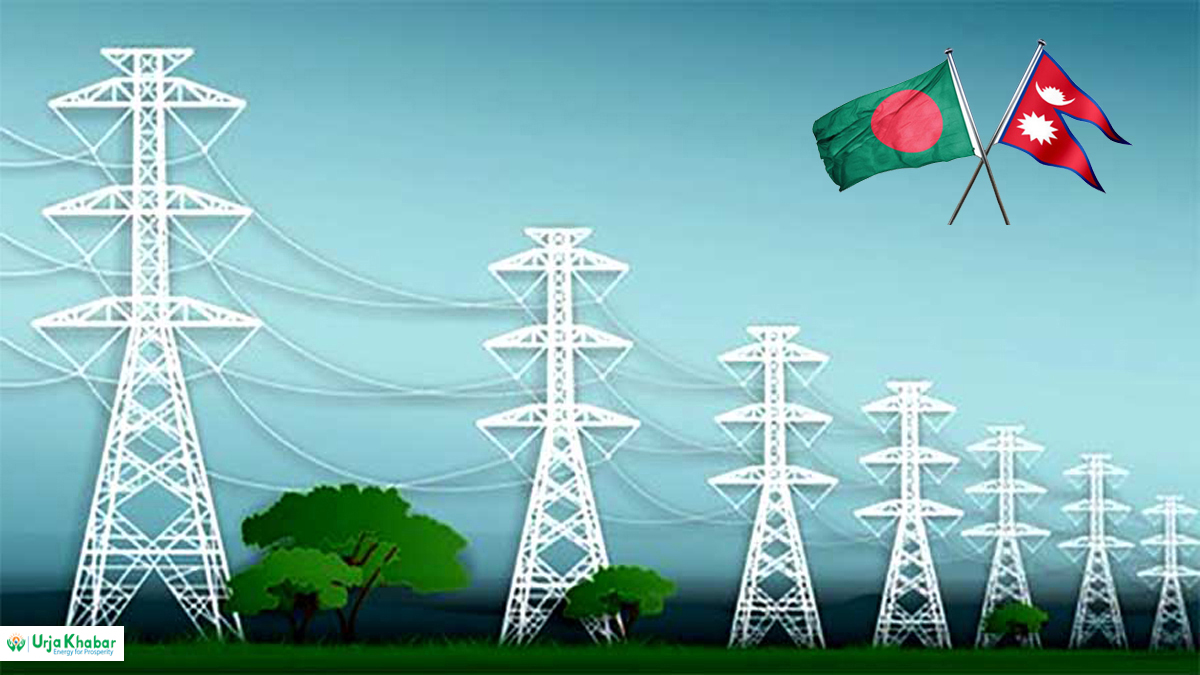
Kathmandu: The interim Government of Bangladesh (GoB) has approved an initiative to import 40 MW of hydropower from Nepal, utilizing the Indian grid for transmission. This project, initiated under the former Sheikh Hasina-led government in June this year, is now facing scrutiny over its cost structure.
The Finance Division has raised objections regarding the transmission line charges imposed by the Indian government for routing the power import. Complicating matters, a file related to the project, initially sent from the Power Division to the law ministry during the Awami League government, went missing. The Power Division has since prepared a new file to keep the project on track.

According to sources within the Power Division, the electricity will be routed through India's Muzaffarpur substation. The cost is set at 6.40 US cents per unit (Tk 7.32 or 8.19 NPR), with an additional trading margin of Rs 0.0595 (Tk 0.09) for India's NTPC Vidyut Vyapar Nigam Ltd (NVVN), plus transmission charges of Tk 0.76. Altogether, the cost per unit of hydropower will total Tk 8.17 (equivalent to 9.15 NPR).
Reports indicate that using the Indian grid will incur an estimated annual cost of Tk 130 crore, amounting to Tk 650 crore over five years.

Payment System
The payment system for the imported hydropower involves settling the cost and transmission charges in dollars, while the trading margin will be paid in Indian rupees.
The Power Division noted that while the cost of imported hydropower from Nepal is higher than domestically produced hydropower in Bangladesh, it remains cheaper than power generated from gas or oil. If the deal proceeds, it could open new opportunities for cross-border energy trade with Nepal and Bhutan. Nepal has shown keen interest in the project, while India remains committed despite the political transition in Bangladesh.
However, officials are uncertain how the situation will evolve under the new circumstances.
Finance Division's Objections
Sources in the Finance Division revealed that Bangladesh will pay a wheeling charge to India for using its grid to import hydropower. While the agreement permits flexibility in setting the wheeling charge, the Finance Division opposed this, arguing that a fixed charge would provide more stability. They expressed concerns that India could unilaterally adjust the charges in the future, which could affect the long-term viability of the project.
A senior Power Division official countered that India's regulations, established in 2018, require adherence if Bangladesh intends to import electricity through India.
India's Role
The hydropower import is subject to the tax regulations of Bangladesh, India, and Nepal. Should India change its tax policies during the import-export process, any additional costs will be split equally between Bangladesh and India. However, if Bangladesh or Nepal alters their tax laws, the affected country will bear the full burden.
A finance ministry official, speaking anonymously, claimed that India often dominates such agreements due to Bangladesh's weaker position. The official criticized the previous Awami League government's "submissive stance," which allegedly led to decisions that favored India more than Bangladesh.
Delays in Tripartite Agreement
Power Division sources also disclosed that a file concerning Nepal's hydropower, sent to the law ministry for review during the Awami League government’s tenure, went missing. This has led to delays, with a new file being prepared.
The import deal will require a tripartite agreement between Bangladesh, Nepal, and India, which could signal a new era of energy cooperation. This could pave the way for further hydropower imports from other neighboring countries. Initially expected to be signed by September, delays are now anticipated due to the missing file and changes in government.
Opinions from other government bodies, such as the National Board of Revenue (NBR), Bangladesh Bank (BB), and the Financial Institutions Division, are still pending. Only the Finance Division has provided its feedback so far. Once all opinions are gathered, the purchase agreement will be finalized and sent for legal vetting.
Concerns Over High Prices
Bangladesh and Nepal signed an agreement for the 40 MW electricity import in May 2022. Under this agreement, Bangladesh would receive 24 MW from one Nepali project and 16 MW from another, with power transmitted to Bangladesh’s national grid via India.
In June 2024, Prof. M Shamsul Alam, an energy adviser to the Consumers Association of Bangladesh (CAB), raised concerns about the high cost of hydropower. He questioned the basis of the Tk 8.17 per unit rate and expressed uncertainty over India’s role in the cross-border trade, calling for greater transparency in the deal.
Shamsul Alam pointed out that while Bangladesh is extending several benefits to India through the agreement, it is crucial to assess what benefits Bangladesh will receive in return from its neighbor.
With support of The Business Post of Bangladesh